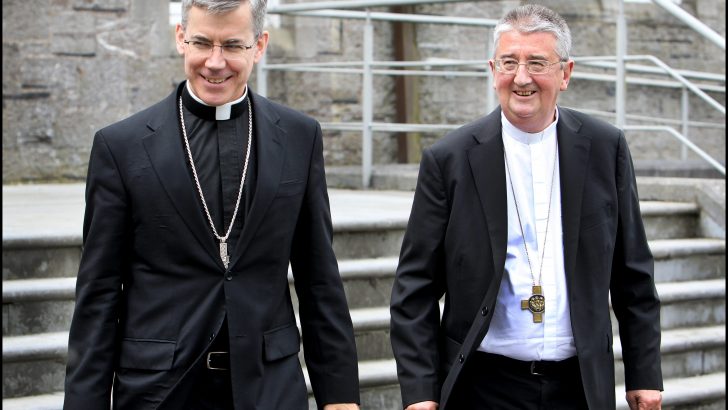This year will be a time when the relationship between Church and State will have to find a new equilibrium following the rupture of 2011 which culminated in the Government’s decision to downgrade the State’s relationship with the Holy See.
The publication of the Cloyne Report provoked considerable anger particularly because of the fact that Judge Yvonne Murphy uncovered mishandling of allegations of abuse in 2008 — 12 years after all Irish bishops had pledged to implement robust procedures that would ensure that children were protected and the reputation of the Church in this sphere was restored.
It’s ironic that it is Bishop John Magee, former private secretary to Popes Paul VI, John Paul I and John Paul II, who will probably be remembered as the man who precipitated an unprecedented frostiness between Church and State marked most notably by the Taoiseach Enda Kenny’s extraordinary attack on the Holy See.
Mr Kenny’s speech, despite the hyperbole-bordering-on-hysteria and the gross factual errors, cleverly articulated and tapped into the genuine anger felt by many Irish Catholics about the failures exposed in Cloyne.
Whatever the deficiencies of the speech, he gave voice to the frustration of people who had heard repeated assurances that policies and procedures were universally rock-solid when the National Board for Safeguarding Children in the Catholic Church (NBSCCC) painted a very different picture, in Cloyne at least. Some of the noises coming from Leinster House were, of course, little more that political posturing.
It’s hard to fathom, for example, that having demanded a comprehensive response from the Holy See to the Cloyne Report that exhaustive response was simply dismissed by the Taoiseach and Tánaiste, neither of whom felt inclined to engage with the substance of the Holy See’s response.
This new year can, if approached with honesty and maturity, mark a new beginning in Ireland’s relationship with the Holy See.
The new papal nuncio Archbishop Charles Brown — who will be consecrated in Rome tomorrow (Friday) — is due to arrive later this month and has evidently been carefully chosen for the role.
Archbishop Brown will have to draw on all of his pastoral instincts and the skills he has honed in working in the Congregation for the Doctrine of the Faith (CDF) in recent years to bring fresh vision to his role.
While he will obviously have State-related diplomatic duties to attend to, his first concern will surely have to be given to the much-needed and long-awaited reform and renewal of the Church in Ireland.
The report of the Apostolic Visitation is expected shortly and it will have to contain some concrete and credible proposals and reforms if a jaded Church (laypeople, priests, religious and bishops) is to be lifted out of a cynical vicious circle.
When it comes to the political sphere, leaders and policy-makers will have to reassess how they engage with issues of faith.
More than a couple of senior politicians — who really ought to know better — have expressed their view that the civil service is heavily infiltrated by ‘secretive Catholic organisations’ while declining to offer any evidence for the alleged presence of bogeymen among them.
Too often politicians, perhaps scarred by the wounds of the controversial referenda of the 1980s/1990s, often characterised as Church-State clashes, are fighting old battles and railing against an authoritarian and narrow-focused Church that (thankfully) no longer exists.
Restoring a good name
Co. Down-based priest Fr Seán Cahill was restored to full priestly ministry at the weekend after police said abuse allegations against him were unfounded.
One can’t even begin to imagine how devastating it must be for a priest (or indeed anyone) to be the subject of a false allegation.
Fr Cahill, who has served the Church for almost 50 years, spent almost a year out of ministry while the allegation was investigated.
The pain of being the subject of an unfounded allegation is intensified because of the way such allegations are immediately reported in the media and the priest involved named before anyone has an idea of whether there is a case to answer. It is right that the safeguarding of children is of paramount concern to the Church and all allegations need to be thoroughly investigated by the competent authorities.
However, there is a heavy responsibility on the media to treat priests fairly and grant them the same presumption of innocence.
Newspapers and broadcasters who have reported on the allegations must also take every necessary step now to ensure that the wider public is made aware of the fact that the allegations against Fr Cahill were found by the statutory authorities to be unfounded.


 Michael Kelly
Michael Kelly Archbishop Charles J Brown Papal Nuncio to Ireland and Archbishop Diarmuid Martin. Pic: Steve Humphreys
Archbishop Charles J Brown Papal Nuncio to Ireland and Archbishop Diarmuid Martin. Pic: Steve Humphreys 